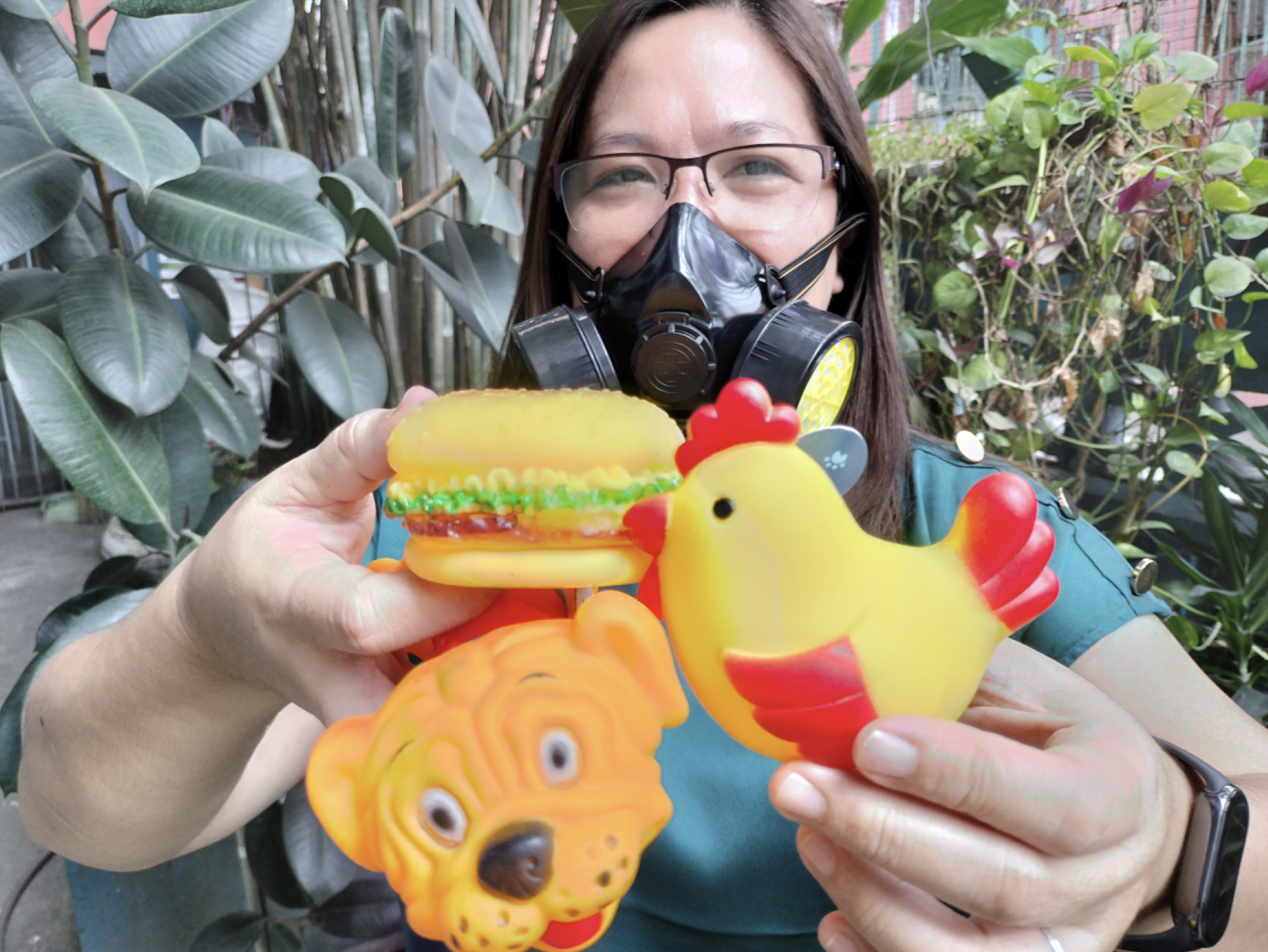
A volunteer shows samples of squeaky toys for pets that contain elevated level of phthalates that is considered carcinogenic. Screenshot from Ecowaste Coalition blogspot / PAWS
MANILA, Philippines — Toxic chemical watchdog Ecowaste Coalition said it has detected harmful levels of phthalates in plastic toys for pet animals.
According to the group, the toys that were found in various stores in Metro Manila exceeded regulatory amounts of safe phthalate content, which is at 1,000 parts per million.
Phthalates can cause various health issues among humans and animals, the group added.
READ: EcoWaste Coalition: No to toxic chemicals in toys
“The squeaky burger toy tested with 142,000 ppm DBP and 35,800 ppm DBP. The squeaky dog toy had 372,000 ppm DEHP (a probable human carcinogen). The squeaky chicken toy contained 98,400 ppm DBP and 206,000 ppm DEHP,” EcoWaste Coalition said in a release.
The tested toys also lacked details in their packaging, including the name of the manufacturer, country of origin, and usage instructions, among others.
“Studies in animals and humans have linked phthalates, which are known EDCs, to a host of health issues, including diabetes, obesity, asthma, heart disease, low IQ, reproductive disorders, cancer of the breast, attention-deficit/hyperactivity disorder (ADHD) and other behavioral problems,” it added.
READ: Ditch toxic fireworks and firecrackers, prioritize health — EcoWaste
Meanwhile, EcoWaste Coalition National Coordinator Aileen Lucero called on people with pets to properly scrutinize the toys they buy for their pets, which can also be played with by their children.
“We see no reason why the quality and safety of pet toys should not be checked and regulated. As pet toys could be used by kids, especially the cute squeaky ones, we find it important for such play things to be free of hazardous substances such as phthalates and other endocrine disrupting chemicals (EDCs),” Lucero said.